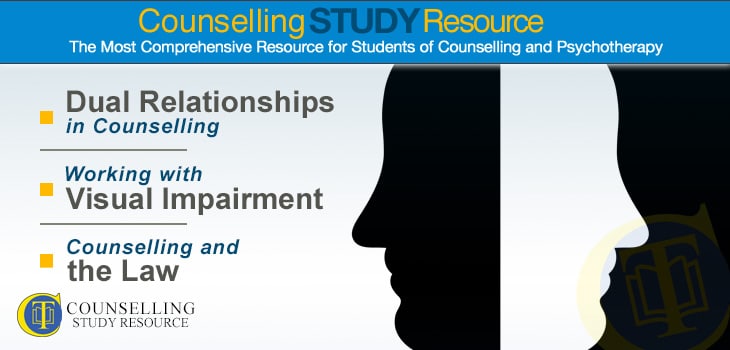Dual Relationships in Counselling (starts at 1.50 mins)
Various sections of the Ethical Framework for the Counselling Professions, published by the British Association for Counselling & Psychotherapy (2018), mention dual relationships. For example, section 33 states:
“We will establish and maintain appropriate professional and personal boundaries in our relationships with clients by ensuring that … any dual or multiple relationships will be avoided where the risks of harm to the client outweigh any benefits to the client.” (page 17)
The topic of dual relationships in counselling comes up often in our Facebook group (where you’ll find over 22,000 others involved in counselling and psychotherapy, including students, qualified counsellors, supervisors and tutors).
Dual relationships occur when you know the client in another context outside the counselling room – for example, as an employee or a friend.
While the Ethical Framework gives us the autonomy as practitioners to make informed choices, it is generally considered best to avoid dual relationships.
This is for a number of reasons, for example:
- The client could feel confused.
- It could inhibit a client’s freedom to be fully open in counselling.
- We could inadvertently prejudge the client, based on our existing knowledge of them.
Dual relationships in counselling could also exist if you know someone in common with the client (e.g. a relative of theirs).
Another tricky situation could be if you realise a client is present in a social context outside counselling.
If in doubt, always talk to your supervisor about any possible dual relationships. And if you’re having personal therapy, do check that you and your therapist don’t have the same supervisor!



